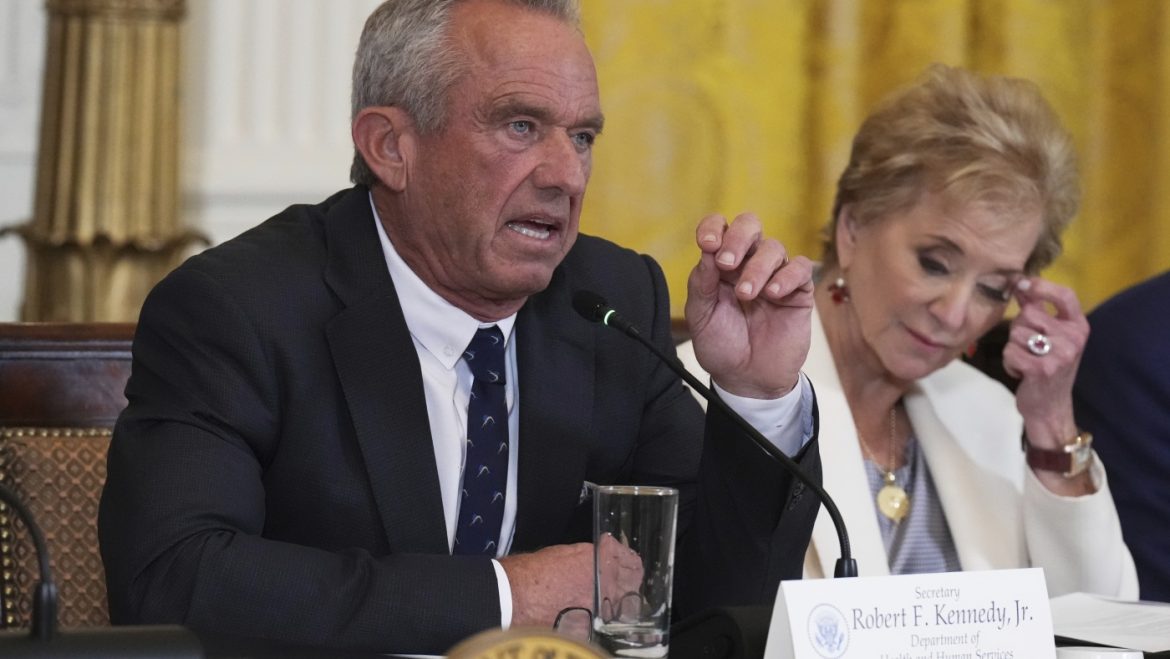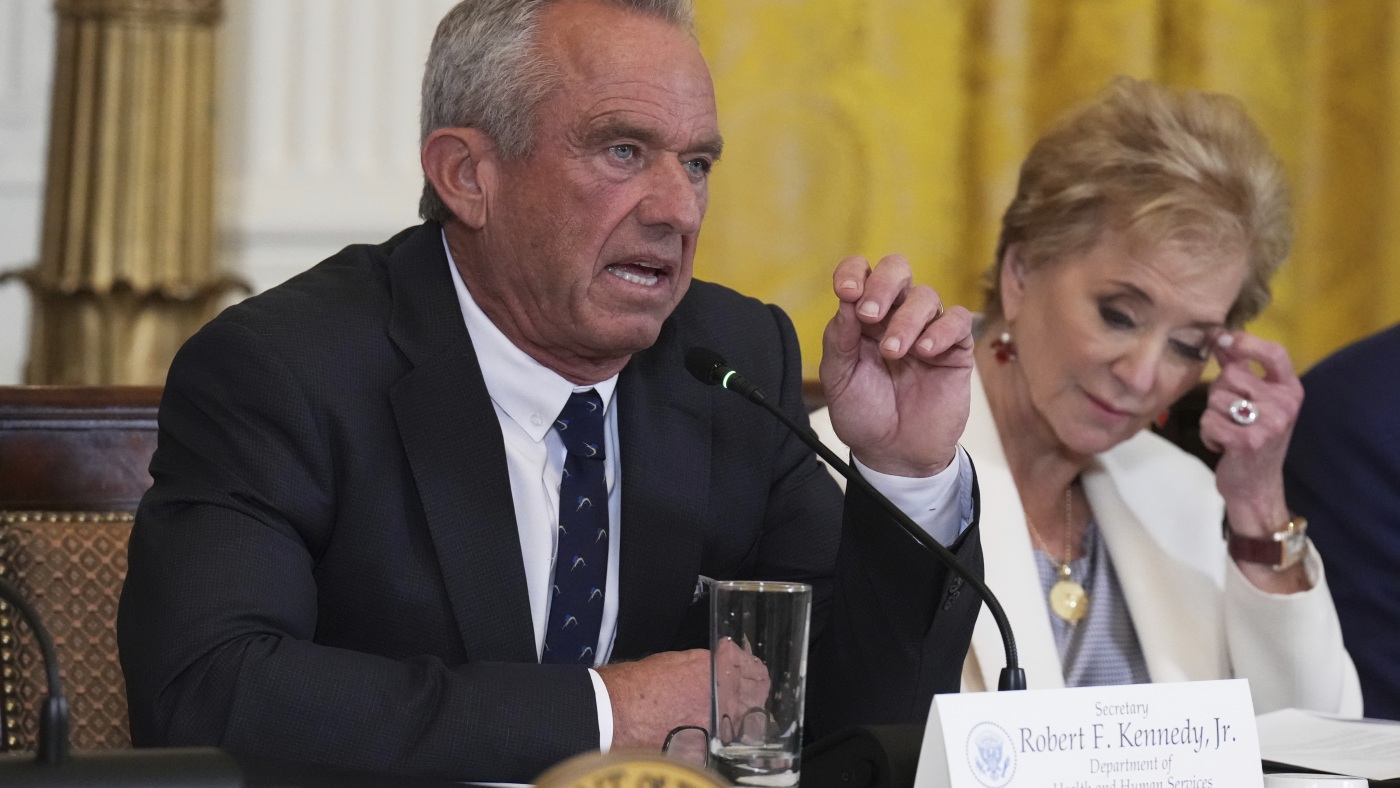The “Make America Healthy Again” (MAHA) Report: A Critical Examination of Its Flaws and Implications
—
Introduction: Ambitions and Immediate Controversies
The “Make America Healthy Again” report, led by U.S. Health and Human Services Secretary Robert F. Kennedy Jr., aimed to address growing concerns about America’s chronic disease crisis, with a focus on children’s health and systemic factors influencing public well-being. Released recently amid high expectations, the report presents sweeping critiques of America’s food supply, pesticide use, pharmaceutical prescriptions, and chemical exposures. However, the report’s reception has been complicated by significant issues regarding its evidentiary foundation. The White House has publicly acknowledged the presence of errors, particularly regarding citations, and has promised corrections. This analysis explores the contents, controversies, and broader implications of the MAHA report, examining what it reveals about the American health landscape and the challenges facing public health policymaking.
—
Scope and Content of the MAHA Report
The MAHA report paints a stark picture of a health crisis affecting American children, characterized by rising rates of obesity, diabetes, mental health issues, and other chronic diseases. It attributes these trends to a constellation of factors:
– Ultra-processed foods and additives: The report critiques the food industry’s use of artificial dyes and preservatives, suggesting these contribute to chronic health conditions.
– Pesticide and chemical exposures: It raises concerns about the long-term health effects of widespread environmental chemicals.
– Prescription drug overuse: The report highlights the extensive use of pharmaceuticals, including antidepressants, suggesting possible overprescription and adverse impacts on children’s health.
– Lifestyle factors: Stress, sleep deprivation, and excessive screen time receive attention as contributing to deteriorating health indicators.
These assertions align with Kennedy’s well-documented skepticism toward industrialized food production and pharmaceutical practices. The report’s broad scope reflects an attempt to diagnose systemic malaise in the nation’s health infrastructure.
—
Evidentiary Challenges and Errors
Despite the report’s ambition and breadth, investigative attention quickly revealed substantial flaws:
– Phantom Studies & Citation Errors: News organizations such as NOTUS examined the MAHA report’s hundreds of cited studies, finding that some did not exist or were inaccurately cited. These lapses call into question the rigor of the report’s scientific backing.
– Possible Formatting or AI-Related Issues: Some explanations suggest that formatting problems or artificial intelligence tools may have contributed to these citation inaccuracies, indicating possible procedural or editorial shortcomings.
– White House Response: Press Secretary Karoline Leavitt confirmed that the White House would update and correct these errors, reflecting transparency and a commitment to maintaining credibility.
The presence of fabricated or misrepresented sources is particularly damaging for a report that relies heavily on scientific authority to justify policy recommendations and critique the current health paradigm.
—
Reactions from Experts and Stakeholders
The MAHA report has elicited a wide range of responses:
– Public health experts recognize that many of the report’s concerns about childhood chronic disease and environmental factors have merit, but emphasize that solutions must be “meaningful” and evidence-based. Dr. Georges Benjamin of the American Public Health Association underscored the gap between diagnosis and actionable policy.
– Farmers and industry groups have expressed alarm, particularly at the report’s stance on pesticides and food additives, fearing regulatory fallout and economic impact.
– Political figures and commentators note the report’s appeal to both health-conscious constituencies and conspiracy-minded factions, given Kennedy’s controversial vaccine skepticism and association with alternative health advocacy.
– Critics highlight the problematic melding of legitimate health concerns with debunked or dubious claims, which risks undermining public trust and diluting the effectiveness of health communication efforts.
The divergent reception underscores ongoing tensions in health policy debates, where scientific rigor, public perception, and political agendas intersect.
—
Contextualizing MAHA in Contemporary Health Policy
The MAHA report arrives in a moment when chronic disease burdens in the U.S.—especially among children—are undeniable and increasingly recognized as a threat to public welfare and national security. The report’s emphasis on food quality, environmental toxins, and pharmaceutical practices reflects growing public unease with industrialized health systems and consumer products.
However, the report’s flawed execution illustrates broader challenges:
– Balancing urgency with accuracy: Addressing health epidemics demands both prompt action and adherence to rigorous scientific standards.
– Navigating misinformation: When well-intentioned public health initiatives are intertwined with controversial or unverified claims, the risk of misinformation spreads, complicating efforts to build consensus.
– Policy implementation hurdles: Ambitious reforms, such as banning certain food dyes or chemicals, face resistance from vested interests, highlighting the complexity of translating reports into effective laws.
MAHA’s experience offers a cautionary tale about the necessity of combining visionary health goals with meticulous research and stakeholder engagement.
—
Conclusion: Learning from MAHA’s Missteps and Moving Forward
The “Make America Healthy Again” report highlights a critical moment in U.S. public health—a recognition that childhood and chronic diseases are spiraling and linked to systemic environmental and behavioral factors. Its intentions to confront these issues are vital and align with widespread calls for healthier food systems and more cautious chemical regulation.
Yet the revealed errors within its scientific citations diminish the report’s authority and risk breeding skepticism toward both its recommendations and the broader health enterprise. The White House’s commitment to correcting these mistakes is a necessary step to restore trust.
Moving forward, the MAHA initiative can serve as a foundational but imperfect beginning: a prompt to deepen rigorous, transparent research; foster cross-sector dialogue; and devise pragmatic, evidence-driven policies that improve American health without sacrificing credibility. The urgency of America’s health crisis demands no less than that balance between ambition and accuracy, advocacy and science.
—
This assessment underscores the intertwined nature of health policy, public trust, and scientific integrity—offering a reflective lens on both the promise and pitfalls of the MAHA report’s contribution to America’s health discourse.


